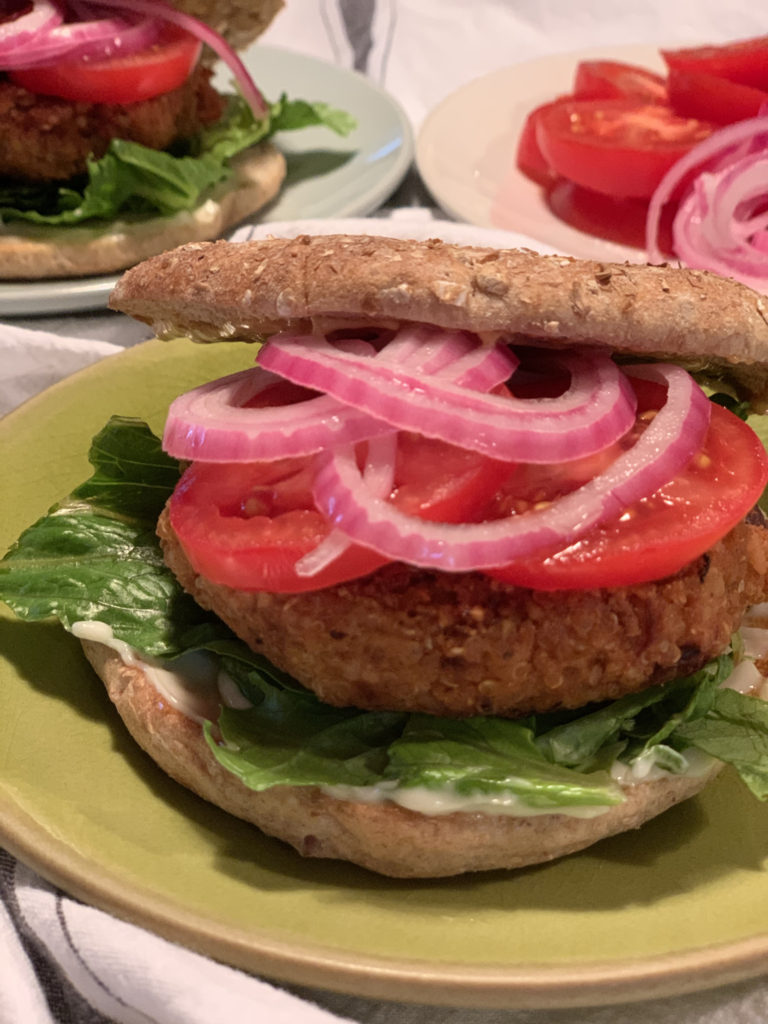April Monthly Newsletter
Learn the fourth principle of Intuitive Eating and confront negative self-talk
Morsel of the Month
Last month, we discussed the principle of Make Peace with Food. That principle focused on our psychological responses to deprivation and how to break the cycle of restricting and overeating. This month we are recognizing and challenging the Food Police, those external and internal voices that dictate our diet rules and tell us if we are being “good” or “bad” based on what we choose to eat.
Many of us have experienced friends, family or strangers commenting on our food choices. It might sound judgemental (“You’re not going to eat all of that, are you?”), self-deprecating (“Wow, I wish I could eat the way that you do without worrying about my weight.”), or under the guise of being concerned (“You know you shouldn’t be eating those cookies if you want to get your blood sugar under control.”). Even more of us experience that judgement from within ourselves. We are not born with food rules, but we have both knowingly and subconsciously absorbed them from our culture. Our food packages, advertisements, magazines and social media are filled with “guilt-free” this and “sinful” that and over time we come to accept these labels as truth. Many of us have also adopted food rules, such as not eating past a certain time of day or avoiding carbs or dairy, without really knowing why, other than that we have a vague idea it might be “bad” for us or might make us gain weight.
One of the most important ways to combat the food police is to challenge our own beliefs and self-talk. We all have a mix of irrational, nonsensical thoughts and rational, grounded beliefs. We first need to identify those beliefs that are irrational. When a diet rule pops up, examine it. Is it accompanied by intense, repetitive feelings? What thoughts accompany this rule? What’s correct and what’s incorrect about this? When we do this, we are then able to reframe the belief or thought into a more rational one. For example, maybe you have the thought “I know I’m addicted to sugar because once I have a piece of candy, I cannot stop eating it until the bag is finished.” Once you examine this calmly, you might be able to reframe it. “I usually deny myself candy, so when I finally allow myself to have it I sometimes eat more than is comfortable. If I allow myself to slow down and enjoy a small serving of candy, with the permission to have some whenever I want it, I find I am satisfied with a smaller portion and I no longer have overwhelming cravings for it.”
Some categories of negative self-talk include all-or-nothing thinking. Many of us are familiar with being “on” a diet or “off” a diet or being ravenous or stuffed. Another type of negative self-talk is based around telling ourselves we “should,” we “must,” we “can’t,” and perfectionist tendencies we may have. A third type is catastrophic thinking, which is the idea that you’re doomed by your behaviors. This could sound like “I’ll never like my body,” “I’m hopeless,” or “I’ve ruined everything.” There is the related pessimistic thinking or cup half-empty thinking, where you are not able to recognize the positive or even the neutral aspects of your situation. Finally, there is the focus on getting to your goal as quickly as possible no matter what the process is to get there. A perfect example is going on an extremely low calorie diet to lose weight as fast as possible for an upcoming event.
If you find yourself wrestling with any of these “Food Police” examples, our dietitians can help. Contact us to make an appointment.
Want to know more? Check out our free nutrition tip sheet on Intuitive Eating Principle 4: Challenge the Food Police on our website.
Athens Announcements
Virtual Cooking Demonstrations with Athens Nutrition
Join Athens Nutrition for our new virtual cooking demonstrations. Learn new techniques from the comfort of your kitchen. Get your nutrition and cooking questions answered live.
Join us for our upcoming event:
April 21 from 12 pm-1 pm: Mediterranean Cooking for Heart Health. A Mediterranean diet is one of the best eating plans for a healthier heart. Cook up some fast and easy recipes the entire family will enjoy. Instructor: Taylor Dimmerling
Register for our virtual cooking demonstration “Mediterranean Cooking for Heart Health”
In case you missed it: Watch the replay of our first cooking demo.
Cooking with Beans. Get easy tips on how to cook a delicious pot of creamy, brothy beans and how to use all types of beans in fast and delicious recipes. Instructor: Judy Matusky
Watch the replay of our virtual cooking demonstration: “Cooking with Beans”
Nutrition Bites
Food waste is one of our pet peeves – it’s bad for our wallets and the environment. Judy and Athens intern, Taylor, wrote about reducing food waste for the Pennsylvania Academy of Nutrition and Dietetics. Check out their tips on the Eat Right PA blog!
Copyright © 2021 Athens Nutrition, All rights reserved.
Our mailing address is:
Athens Nutrition
27 W Athens Ave
Ardmore, PA 19003-1321

Pingback: Discover the Satisfaction Factor - Athens Nutrition